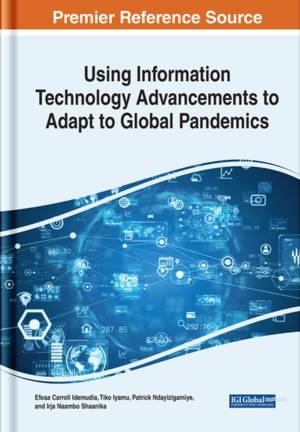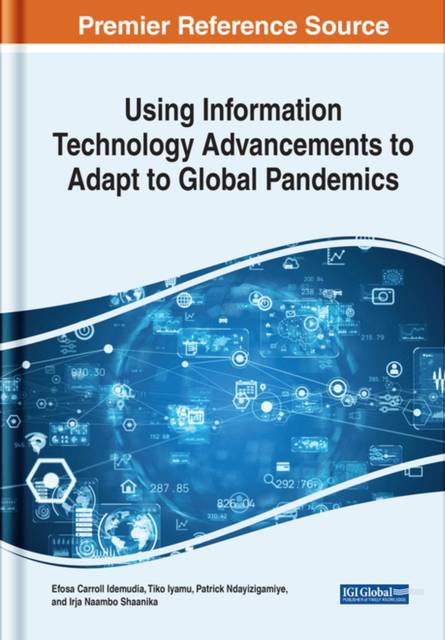
- Afhalen na 1 uur in een winkel met voorraad
- Gratis thuislevering in België vanaf € 30
- Ruim aanbod met 7 miljoen producten
- Afhalen na 1 uur in een winkel met voorraad
- Gratis thuislevering in België vanaf € 30
- Ruim aanbod met 7 miljoen producten
Zoeken
Using Information Technology Advancements to Adapt to Global Pandemics
Christina Maria Anastasia, Kennedy Maranga, Rae Denise Madison
Hardcover | Engels
€ 409,95
+ 819 punten
Omschrijving
Many organizations, including government institutions and agencies, continue to increase their financial investment on information technology (IT) solutions. Despite these investments, during the global pandemic, employees and managers are either struggling or unequipped to use these tools effectively and efficiently for sustainability, competitive advantage, and decision making. Due to global pandemics, companies must harness the power of various digital channels such as big data analytics and artificial intelligence to better serve their customers and business partners. Using Information Technology Advancements to Adapt to Global Pandemics provides insights and understanding on how companies and organizations are using advances in IT to adapt to global pandemics such as COVID-19. It explores how the various IT approaches can be used for strategic purposes. Covering topics such as higher education institutions, religious organizations, and telework, this premier reference source is an essential resource for government officials, business leaders and managers, industry professionals, IT specialists, policymakers, libraries, academicians, students, and researchers.
Specificaties
Betrokkenen
- Auteur(s):
- Uitgeverij:
Inhoud
- Aantal bladzijden:
- 300
- Taal:
- Engels
Eigenschappen
- Productcode (EAN):
- 9781799894186
- Verschijningsdatum:
- 13/05/2022
- Uitvoering:
- Hardcover
- Formaat:
- Genaaid
- Afmetingen:
- 178 mm x 254 mm
- Gewicht:
- 734 g

Alleen bij Standaard Boekhandel
+ 819 punten op je klantenkaart van Standaard Boekhandel
Beoordelingen
We publiceren alleen reviews die voldoen aan de voorwaarden voor reviews. Bekijk onze voorwaarden voor reviews.








